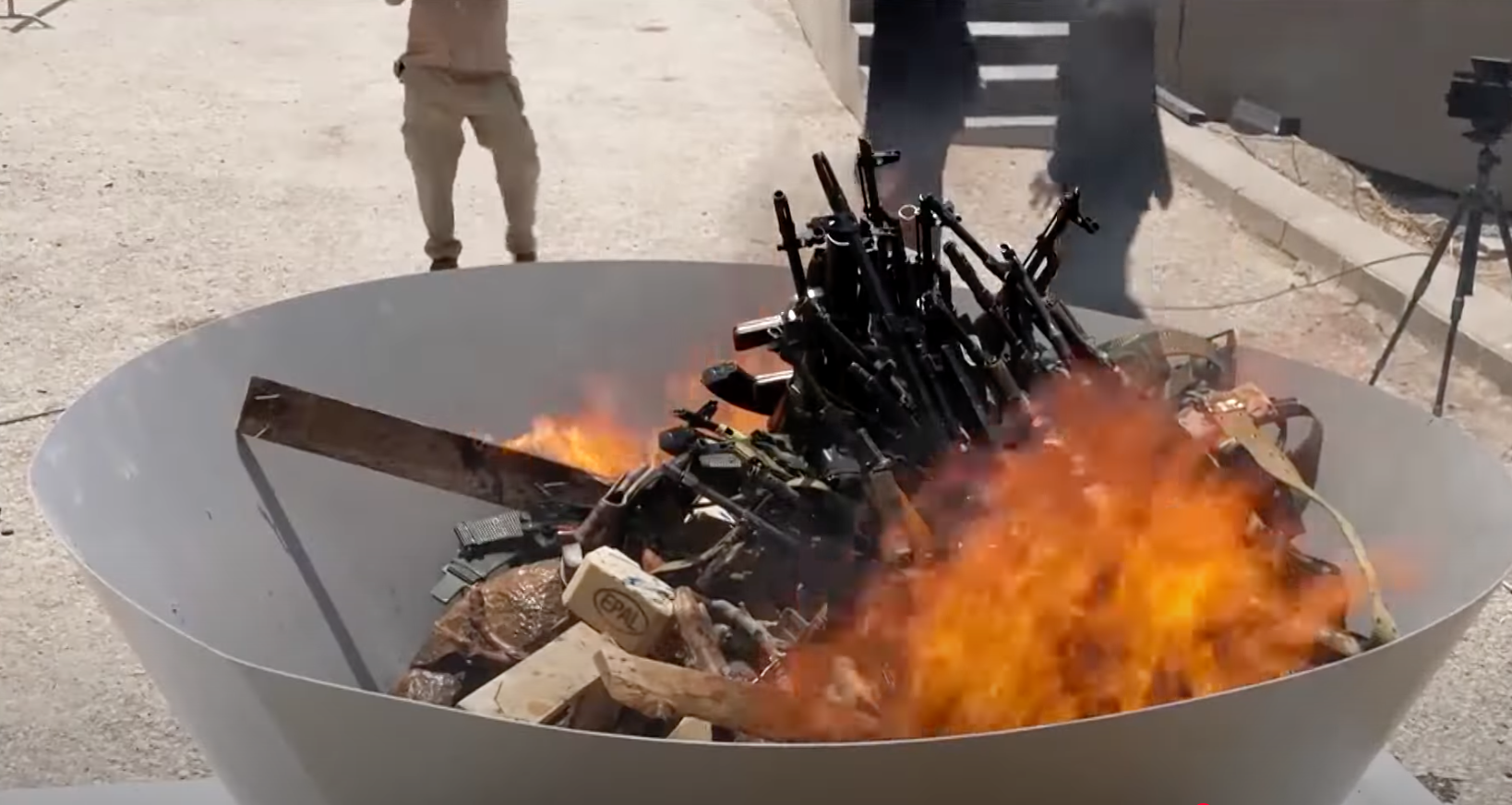PKK Disarms in Northern Iraq, Launching New Peace Process
The Kurdistan Workers’ Party (PKK) began laying down its weapons in a symbolic ceremony in northern Iraq on Friday, marking the first visible step in a broader disarmament process aimed at ending over four decades of armed conflict with Turkey. Iraqi and Turkish officials hailed the move as a historic milestone for regional stability.
The event, held in the mountains of Sulaymaniyah province in Iraq’s Kurdish region, featured PKK fighters burning rifles and machine guns in a large cauldron. While most media were barred from the site, state-run Iraqi News Agency reported that 30 fighters participated in the initial disarmament, which is expected to continue in stages through September.
This holiday season, give to:
Truth and understanding
The Media Line's intrepid correspondents are in Israel, Gaza, Lebanon, Syria and Pakistan providing first-person reporting.
They all said they cover it.
We see it.
We report with just one agenda: the truth.


“This development paves the way for a more stable and secure future,” the Iraqi presidency said in a statement, calling for all sides to respect sovereignty, support legitimate rights, and commit to peace.
PKK leader Abdullah Öcalan, imprisoned in Turkey since 1999, had called earlier this year for the group to abandon armed struggle and transition to legal political activism. “I believe in the power of politics and social peace, not weapons,” Öcalan said in a recent video message.
Turkey, which considers the PKK a terrorist group, as do the United States and European Union, welcomed the move. Turkish President Recep Tayyip Erdoğan called it “an important step toward our goal of a terrorism-free Turkey.” Turkish parliamentary Speaker Numan Kurtulmuş acknowledged the progress but emphasized that “there’s still a long way to go.”
Previous peace efforts collapsed in 2015, but the current five-phase initiative includes political outreach, legal reintegration, and long-term reconciliation. Kurdish communities in Iraq expressed cautious optimism, though concerns remain about Kurdish prisoners in Turkey and the future of affiliated groups in Syria.

